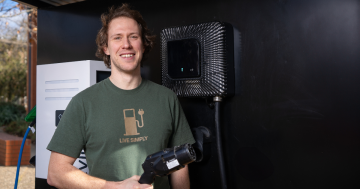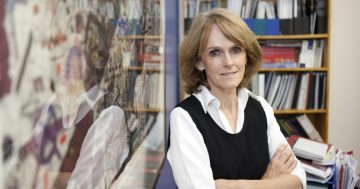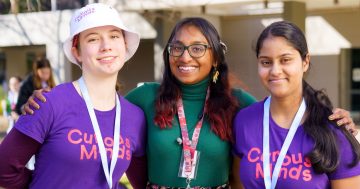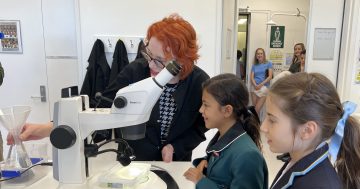
Australia’s young scientists need a more certain and supportive environment to keep them in research, according to the ACT Scientist of the Year, Dr Kai Xun Chan from the Australian National University.
Dr Chan, whose research at the ARC Centre of Excellence in Plant Energy Biology is helping to find ways to improve drought tolerance in crops, said uncertain funding and short-term contracts were the main challenges facing young scientists.
“Science is often a very long-term endeavour. I am very privileged to work in the Centre of Excellence, which has been funded since 2006. It’s almost unheard of to be funded continuously for 11 years in the Australian context,” he said.
“It has been extremely important for me to have that stability as a PhD student and postdoctoral fellow to know that I have got a secure contract.”
He said the modern scientist needed to also teach and reach out to the public to inspire the next generation of scientists.
Dr Chan remained optimistic about the future of science saying it was wrong to suggest that Australian innovation was lagging behind the rest of the world.
“I was at an innovations conference in Melbourne two weeks ago and the solutions that Australian innovators are coming up with are mind blowing,” he said.
Dr Chan, whose work involved cross-disciplinary approaches such as coding and robotics, believed research was evolving and breaking out of the university environment into new pathways.
“Young scientists are branching out on their own, forming their own start-ups to find new ways to do things beyond the walls of academia,” he said.
“We lag a little behind the US in encouraging industry here but those walls are slowly but surely coming down. Universities are aware of the need to engage with industry to push innovation in addition to funding basic research.”
He said that if research could be advanced on multiple fronts with strong public backing and government can view science, technology and innovation not as distinct units but collectively, then there will be stronger political will to commit to supporting research in Australia in the long term.
Dr Chan, whose $30,000 prize coincides with National Science Week, said that for many young people context and hands-on experience were important drivers for pursuing science.
As a young person in Malaysia, going to a science museum display and being able to use tools to explore the sea floor ”struck a strong chord that I could control the investigative process in my own hand to find out what I was interested in.”
“That kind of connection and interactivity is quite important, and this week across Australia and particularly in Canberra there are lots of opportunities for high school children to experience that,” he said.
Dr Chan said the award was very important and powerful motivational tool for a young scientist.
“It’s huge boost to my career but more importantly what it tells me as an early career scientist is that my work is being recognised. I’ve got a platform to stand on, take stock and say ‘now I want to go on and achieve bigger things’.”
For more information about National Science Week go here.

















